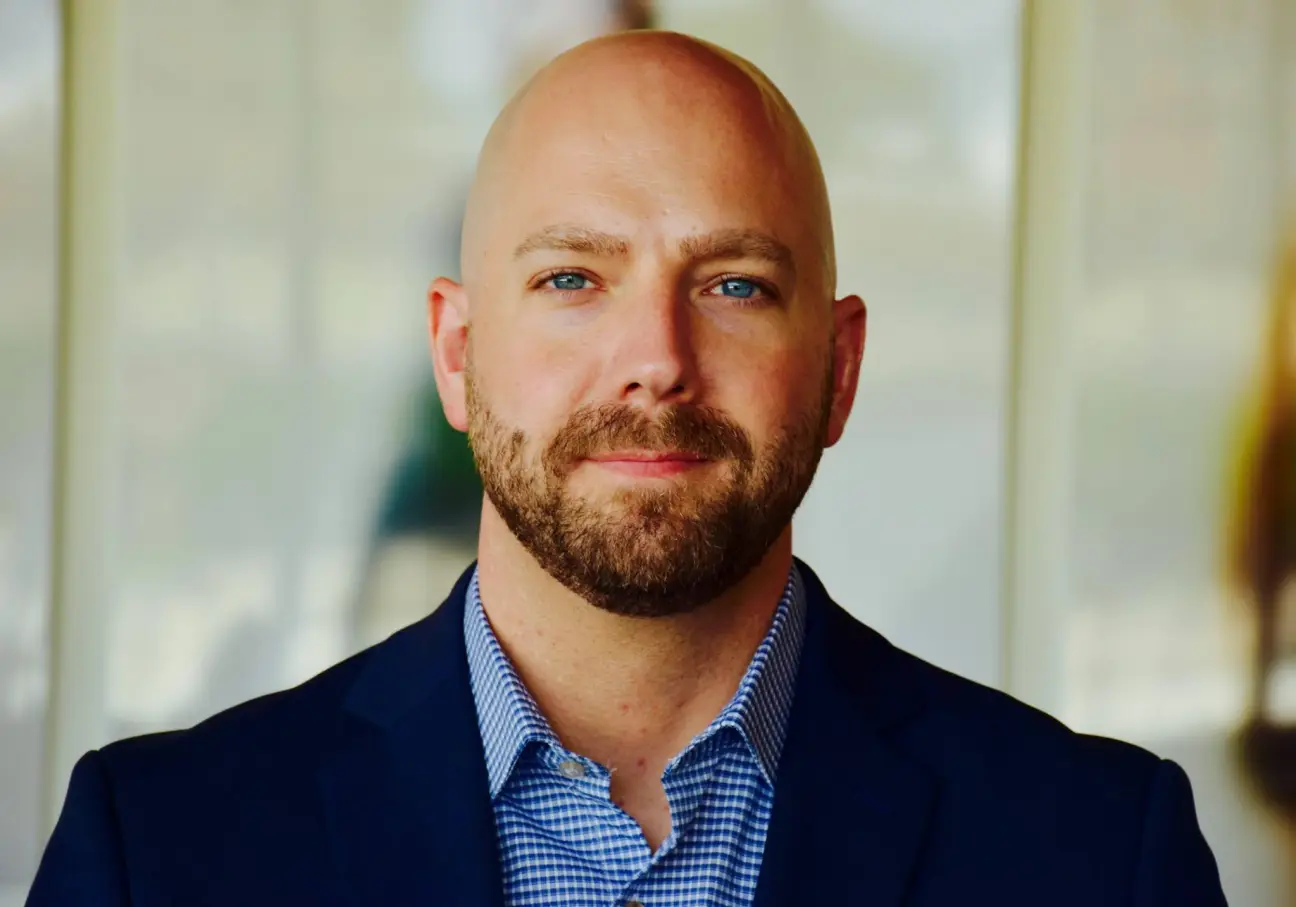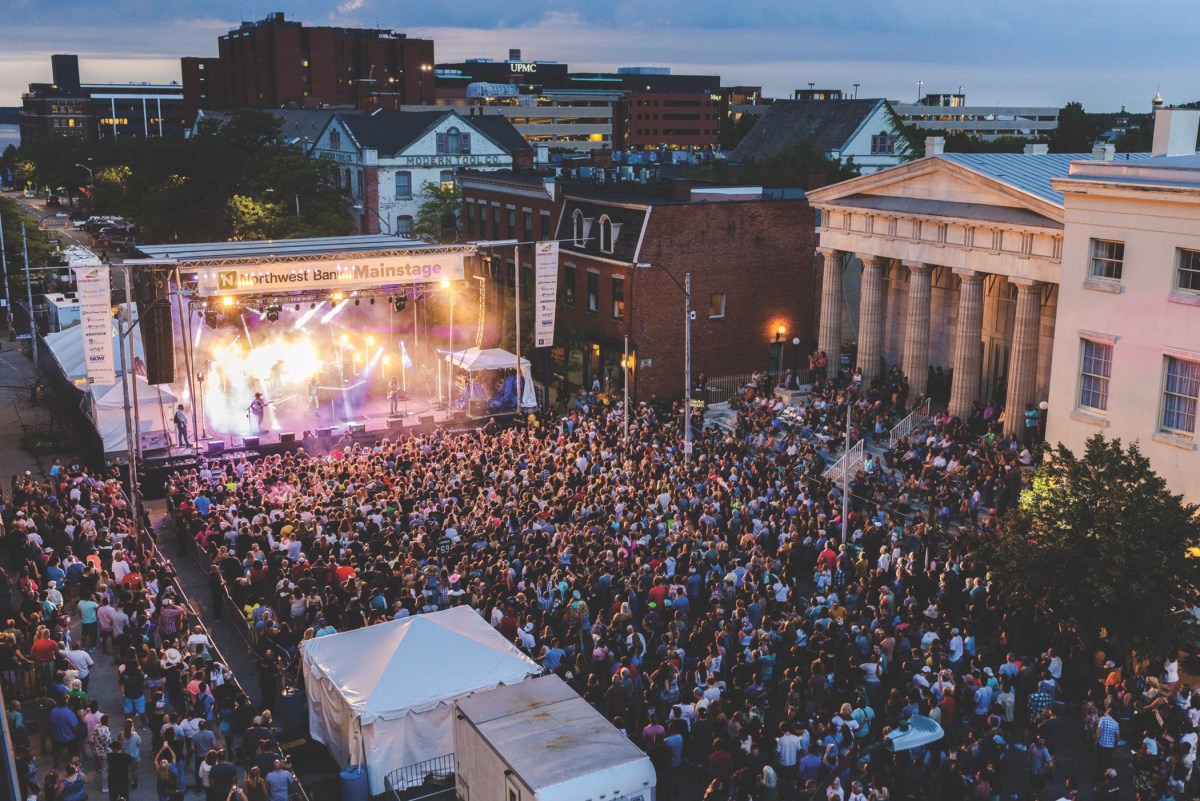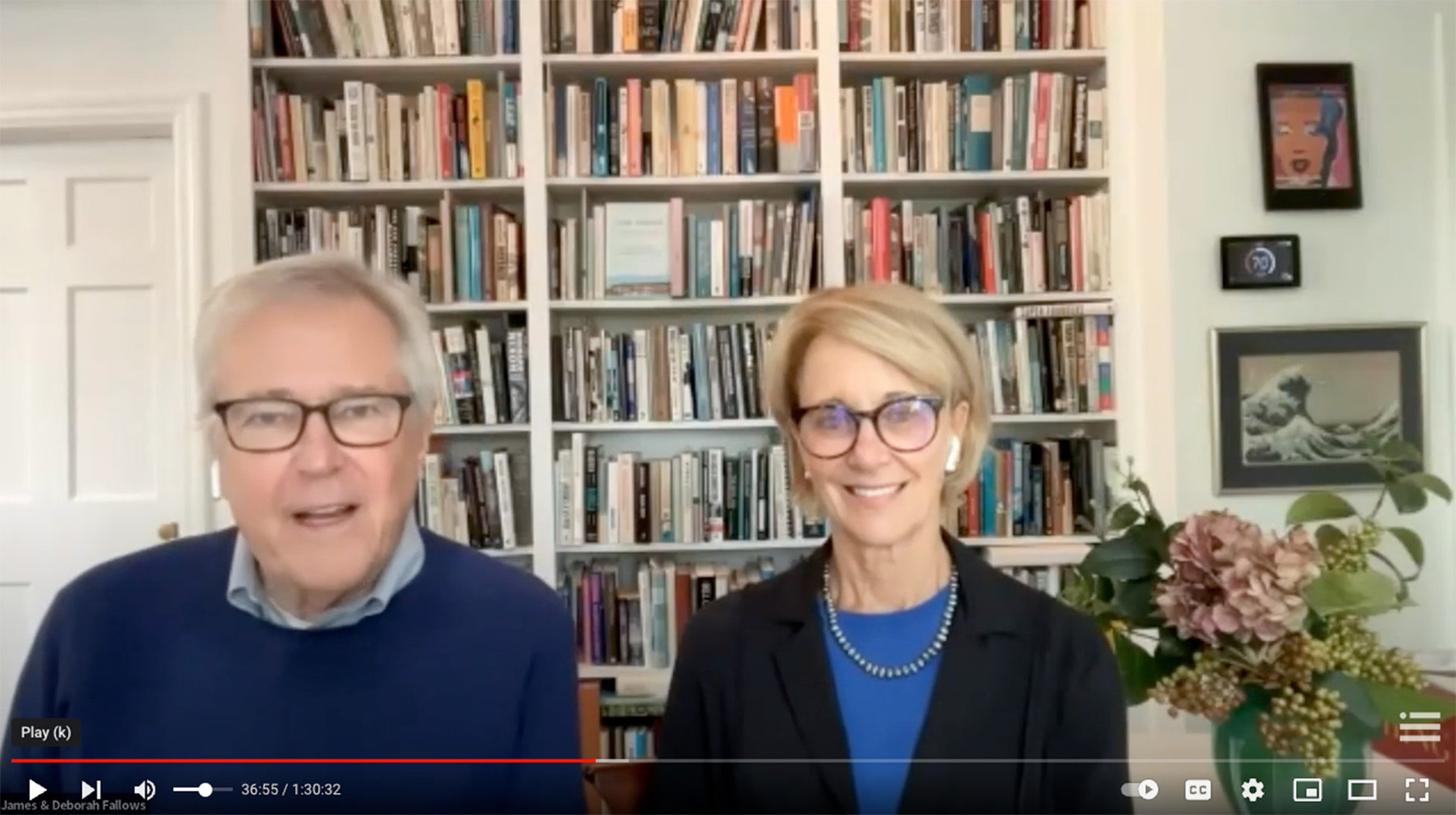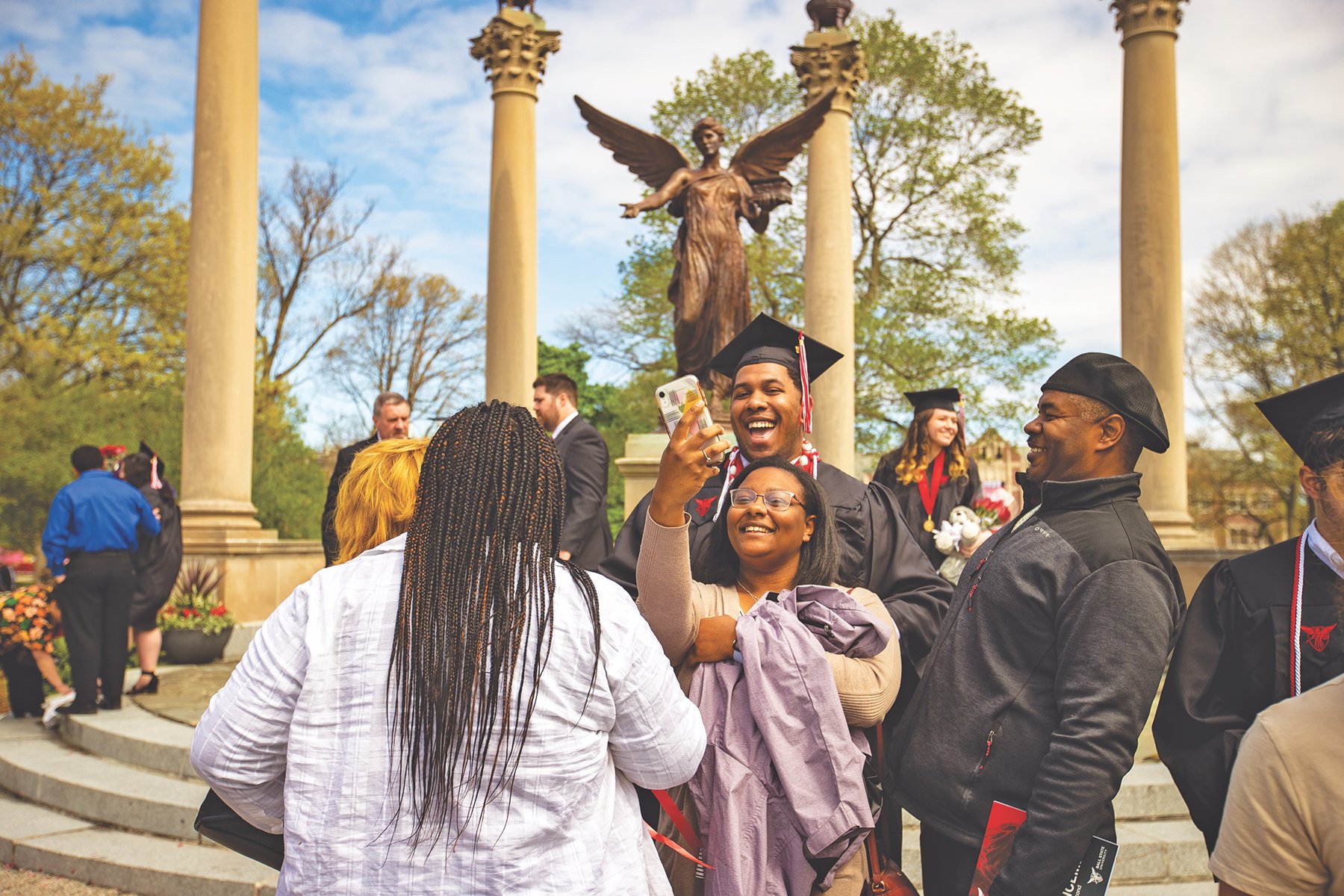Editor’s note: Since 2007, The Daily Yonder has been telling the rich and complex stories of rural America, in contrast to the familiar one-story-fits-all versions. The Our Towns team has been long-time admirers of The Daily Yonder’s work, and we are excited to begin sharing some of their reporting on the Our Towns website, which we first started doing here.
Two areas of focus at Our Towns have been to tell the stories of how people are experimenting in education and what innovation looks like in rural America. In a conversation between The Daily Yonder’s Lane Wendell Fischer and Matt Newlin, the founder of The Rural Student Experience podcast (which you can listen to here), we see why empowering rural students to pursue further education and achieve success at the college level matters.
Q&A: How to Support Rural Students Pursuing Higher Education
Editor’s Note: This interview first appeared in Path Finders, an email newsletter from the Daily Yonder. Each week, Path Finders features a Q&A with a rural thinker, creator, or doer. Like what you see here? You can join the mailing list at the bottom of this article and receive more conversations like this in your inbox each week.
I’m no stranger to the struggle that can come from being a rural college student. I felt lost and alone when I left behind the only place I ever called home—a family cattle ranch and small hometown in Western Kansas—to attend Yale University in a crowded New England city. Heck, I almost didn’t apply in the first place due to self-doubt and a fear of not belonging.
When I came to Yale, I viewed my background as a shortcoming and tried to tuck it away in hopes of fitting in. After finishing up my third year at college I’ve learned that my rural identity is actually my greatest strength. In fact, my upbringing made me a uniquely qualified candidate for admissions, gives me rare and special perspectives in the classroom, and at the end of the day makes me a very “interesting” friend (one who will blast Dolly and Reba if put in charge of the party playlist).
After hearing about Matt Newlin, founder of The Rural College Student Experience, and his work with higher education consulting, I couldn’t wait to hear back from him and learn more about the valuable resources he has to share with rural students applying to and entering higher education institutions.
Season two of Newlin’s podcast, The Rural College Student Experience, premiered on June 28, 2022.

Lane Wendell Fischer, The Daily Yonder: First off, I would love to hear a bit about you and your career. How did you get your start in higher education consulting? And what is your personal relationship with postsecondary equity and access?
Matt Newlin: My work and passion for postsecondary equity comes from my own experiences as a first-generation, low-income student from a working-class family. My time in college was difficult because I didn’t know how to ask faculty for help or know that there were people and offices on campus dedicated to helping me. I was in my junior year before I started feeling like I had a grip on what was happening. Now, 20 years later, students are still struggling with these same institutional barriers to enrollment and success.
After working on college campuses for many years, I now have the incredible opportunity to work with colleges and organizations as an external consultant to improve postsecondary enrollment and success for students who have been historically underserved. My work has included developing equity-minded resources and programs, auditing policies and processes to ensure they are student-centered, and coaching campus employees on equity-focused success initiatives. It has been so rewarding to affect change in higher education systems because I know what we’re doing will benefit current and future students.
DY: Last fall you released the inaugural season of The Rural College Student Experience. What led you to create this podcast? And why do you think it is important to center rural voices in higher education?
MN: My previous position was Director of Rural Initiatives at College Advising Corps, a national college access organization. In that role, I was able to work with high school advisors across the country who were serving in rural districts. Through this work with partners in 16 states, I gained insight into the struggles rural students encounter when pursuing – or even considering – higher education. Only 29% of rural high school students enroll in postsecondary education immediately after high school, while urban and suburban students enroll at much higher rates. Very quickly I realized that something was broken in the way we serve rural students. And, while there is a growing amount of research and “best practices” for supporting rural students, rarely do we center the voices of the students to tell us what they need or how they can be successful. This podcast grew out of my desire to hear more rural voices rather than just academic literature or data and statistics. I always say the podcast is “driven” by my co-host because their perspective and opinions are what make each episode so engaging.
DY: As a rural student currently enrolled in a higher education institution, I know there are numerous issues in this area to address. What are some of the important topics you’ve touched upon in the podcast so far and what can viewers expect from you in the future?
MN: Only since the 2016 election of Donald Trump have most colleges and universities begun recognizing rural students as valuable members of the campus community, but outreach and recruitment efforts are still designed with urban/suburban students in mind. Colleges don’t understand the unique rural populations they are attempting to serve, nor do they make efforts to adjust their services or campus resources. Through conversations with my co-hosts, I’ve heard again and again that colleges are not treating rural students as a unique identity with their own strengths, resilience, and contributions to the campus. Many students feel like colleges are making a half-hearted effort to recruit and support them because they are simply revising past approaches instead of creating something entirely new for rural students.
Additionally, institutions are still under the impression that all rural students are the same and come from identical communities. On the podcast, we are always talking about how “rural is not a monolith,” meaning that each rural community has its own unique population, culture, norms, challenges, and views on postsecondary education. Most educators don’t know that nearly a quarter of rural students are people of color. They also aren’t aware of the large number of migrant, undocumented, and first-generation U.S. citizens that live in rural spaces. Unfortunately, what they DO know is rural communities have, on average, lower postsecondary educational attainment rates which means colleges are less likely to recruit from those areas because of the “poor” ROI on sending admission materials or recruiters to those communities. Through this podcast I hope to change those opinions by highlighting some of the incredible students who come from rural spaces.
DY: I think a lot of rural students enter college feeling as if they are at a knowledge-and-skills deficit in comparison to their urban and suburban peers, creating the ever-looming “imposter syndrome.” I know I’ve experienced those doubts and fears in my own time at college. What are some of the unique strengths you’ve seen rural students possess? And what advice would you give to a student worried they can’t or don’t fit in on their college campus?
MN: First, it is so important to find a community on campus, ideally before classes even start. Rural communities are resilient, caring, and close-knit, so rural students often feel a better sense of belonging if they can find their “people.” Since most campuses don’t have rural-focused services – yet! – these communities may be found in TRIO programs, multicultural/identity-based services, first-year experience courses, or summer bridge programs.

Some of the incredible students I’ve interviewed on the podcast have gone so far as to establish their own rural student groups or clubs. Finding your place on campus is important, so I would encourage students to connect with others as soon as they can.
Second, imposter syndrome is very real for rural students, but also many underserved students in general. First-generation students, students of color, non-traditional students, and others all regularly report feeling like they don’t belong. It’s our job as educators to make sure they feel like valued and appreciated members of the campus. For rural students, again, I think it comes down to finding your community and talking with other students who may also be struggling. Mental health counselors and resources are critical, too, if a student truly feels like they are struggling, they should seek advice and help as quickly as they can. Rural students are resourceful and resilient. They can figure out how to make something work or figure out a solution because, in many rural spaces, they are used to fewer or limited resources which makes them creative problem solvers. Institutions, though, are mired in jargon, the hidden curriculum, and archaic policies that require rural students to translate or guess at what is happening. This leads to severe retention and graduation issues because the institutional systems are so complex and exhausting. Rural students could be just as successful as non-rural students if we made the college experience more transparent and easier to navigate.
DY: Each episode of the The Rural College Student Experience features a rural student co-host currently enrolled in a higher education institution, as well as a guest researcher, scholar, practitioner, or counselor to bring additional insight to the show. How have you gone about finding these guests and what are a few interesting stories you’ve heard so far?
MN: Up to this point, I’ve been recruiting co-hosts and guests through my own professional networks and through social media. It has been so wonderful to hear the responses from people who are thrilled this podcast exists to give a platform to rural voices. I’ve really enjoyed all of the co-hosts and guests I’ve interviewed so far, especially getting to learn about the unique towns and communities where they live. One of my co-hosts from Season 1 talked about being the first student from their high school to go to college out of state ever which was a huge deal. He was proud of himself because now he could be that role model/trailblazer for younger students that he never had. I love those stories because the students are thinking about their communities and not just themselves. It’s really wonderful.
DY: Due to the scope of your podcast I imagine you attract viewers from many different backgrounds: educators, researchers, parents, rural college students themselves, and more. How do you balance a podcast with these varied points of interest? And what overarching lessons do you hope these different groups learn from your discussions?
MN: Balancing the interests of all of the listeners is tricky, especially because, as I’m learning, gathering solid podcast statistics and demographics isn’t the easiest thing to do. I have a sense of who our listeners are, but I’m hoping in Season 2 to better understand the audience’s interest areas.
In every episode I encourage the co-host and guest to provide practical advice for rural students, families, and higher education professionals. Our conversations are always very interesting and cover a wide range of issues, but I also want listeners, especially students, to walk away with specific, tangible things they can do. I also do my best to interject to clarify jargon and pieces of the hidden curriculum so that the conversation is as educational as it is entertaining.
DY: My last question—what advice would you give to any rural high school student or family currently overwhelmed by the college application process or lacking familial or school resources? Where should they start?
MN: Start by asking questions to everyone and anyone who will listen. I mean that sincerely. I wish I’d had the confidence to ask for more help in college because I would have been more successful. For students who are considering college in the future, talk to your teachers and counselors about college options. Additionally, talk to anyone who has attended college – two-year or four-year – to ask their advice and thoughts about their institution and starting college in general. Talk to people who have attended all types of institutions – public, private, in state, out of state, small, large – so you can find your right match and fit. Also, there are tons of amazing online resources like How to College on YouTube and BigFuture from the College Board.
Also, reach out to admission counselors, financial aid advisors, and even faculty at the college or colleges you’re considering to learn more about the institution. What is the enrollment size? What services are available for tutoring? Are there clubs/organizations that you’ll be interested in? The more you learn about a school, the better off you’ll be making a decision.
This article first appeared on The Daily Yonder and is republished here under a Creative Commons license.





